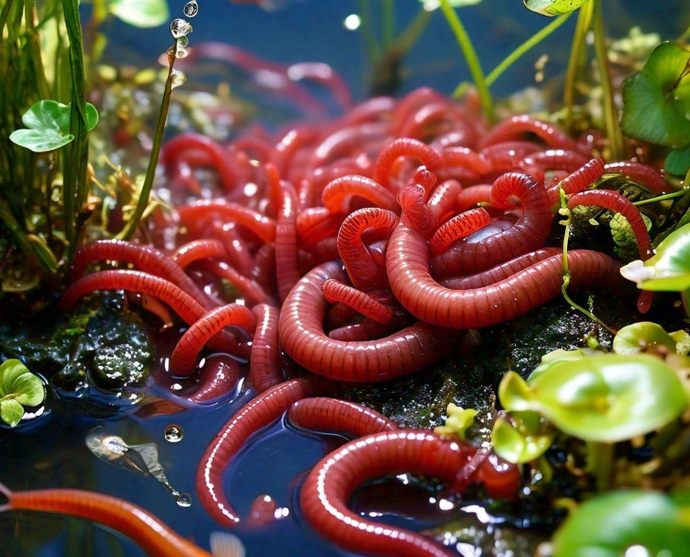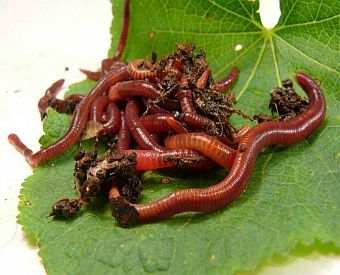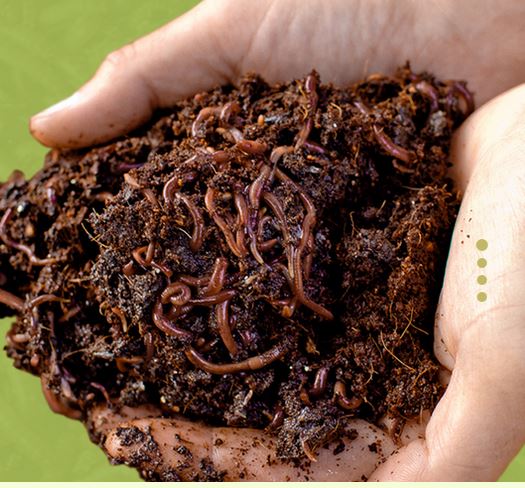Why Red Wigglers Are Important for Natural Farming
Red wigglers play an essential function in natural farming, primarily with their unique capability to decompose natural products and improve dirt health and wellness. The degree of their influence on agricultural practices and soil biology increases interesting inquiries concerning the future of natural farming.
Duty of Red Wigglers in Soil Wellness

Additionally, red wigglers boost soil structure by producing networks as they delve. These networks enhance aeration and water infiltration, advertising a healthier origin environment. Their activity also helps in keeping ideal dampness levels, which is critical for healthy plant development.

Benefits of Worm Spreadings
Worm castings, the nutrient-rich waste matter created by red wigglers, offer as an effective modification for natural farming. These spreadings are packed with essential nutrients such as nitrogen, phosphorus, and potassium, which are essential for plant growth. Unlike artificial fertilizers, worm spreadings launch nutrients gradually, offering a consistent supply in time and minimizing the risk of nutrient leaching and runoff.
In addition, worm castings improve soil framework and aeration, advertising much healthier root systems. Their high organic matter content improves wetness retention, allowing plants to better hold up against drought conditions. In addition, worm spreadings contain useful bacteria that support plant health by reducing pathogens and boosting nutrition uptake.
The application of worm spreadings can cause raised plant yields and boosted high quality of fruit and vegetables, making them an important resource for natural farmers. Their use likewise aligns with lasting farming practices, adding to soil fertility without the adverse ecological effects connected with chemical fertilizers. In general, the incorporation of worm castings right into agricultural methods cultivates a much more resistant and productive ecological community, highlighting the significance of red wigglers in natural farming systems.

Enhancing Nutrient Biking
(red wiggler worms)Vitamins and mineral cycling is a crucial procedure in organic farming, and the combination of red wigglers plays a crucial role in enhancing this cycle. As red wigglers eat decaying organic matter, they excrete nutrient-rich spreadings, which are bristling with helpful germs.
In addition, red wigglers help to speed up the mineralization of nutrients, transforming them from inert kinds right into bioavailable kinds that plants can take in. This process is important for preserving dirt fertility and promoting healthy crop growth. The visibility of red wigglers additionally urges a varied soil ecological community, promoting an equilibrium of nutrients that supports various plant types.
Improving Soil Structure
The improvement of soil framework is essential for fostering a healthy and balanced farming community, and the task of red wigglers considerably adds to this enhancement. These earthworms play a crucial function in aerating the dirt and creating a network of networks that assist in water infiltration and origin infiltration. As they tunnel with the dirt, red wigglers separate compacted layers, enabling much better oxygen exchange and promoting microbial task.
Moreover, the natural matter generated from their waste, referred to as vermicast, improves soil aggregation. This process produces stable globs of dirt fragments, improving dirt porosity and reducing disintegration (red wigglers). The existence of red wigglers additionally urges the growth of useful fungal networks, which are critical for nutrient uptake by plants
Promoting Lasting Practices
Incorporating red wigglers right into chemical-free farming techniques not only boosts soil health yet additionally advertises lasting agricultural approaches. These earthworms play an essential role in nutrient cycling, changing organic waste into important garden compost that enhances the dirt. By making use of red wigglers, farmers can efficiently minimize dependence on synthetic plant foods, thereby decreasing chemical runoff and its detrimental click this link impacts on communities.
Additionally, the unification of red wigglers encourages the method of reusing organic products, such as cooking area scraps and ranch waste. This waste reduction method not just lowers disposal costs however likewise cultivates a closed-loop system where nutrients are continually gone back to the dirt (red wigglers). Such methods are necessary in mitigating environment modification, as they enhance carbon sequestration and decrease greenhouse gas emissions
Furthermore, red wigglers enhance water retention in the soil, which is essential in times of drought. Their burrowing activities produce networks that enable water to penetrate much deeper into the ground, therefore promoting reliable water use. Inevitably, integrating red wigglers right into chemical-free farming not just supports biodiversity yet additionally aligns with the concepts of lasting farming, using an alternative approach to food production.
Conclusion
In final thought, red wigglers play a vital function in natural farming by significantly enhancing soil health and wellness and fertility. Thus, the integration of red wigglers into agricultural practices is vital for advertising sustainability and improving total dirt quality.